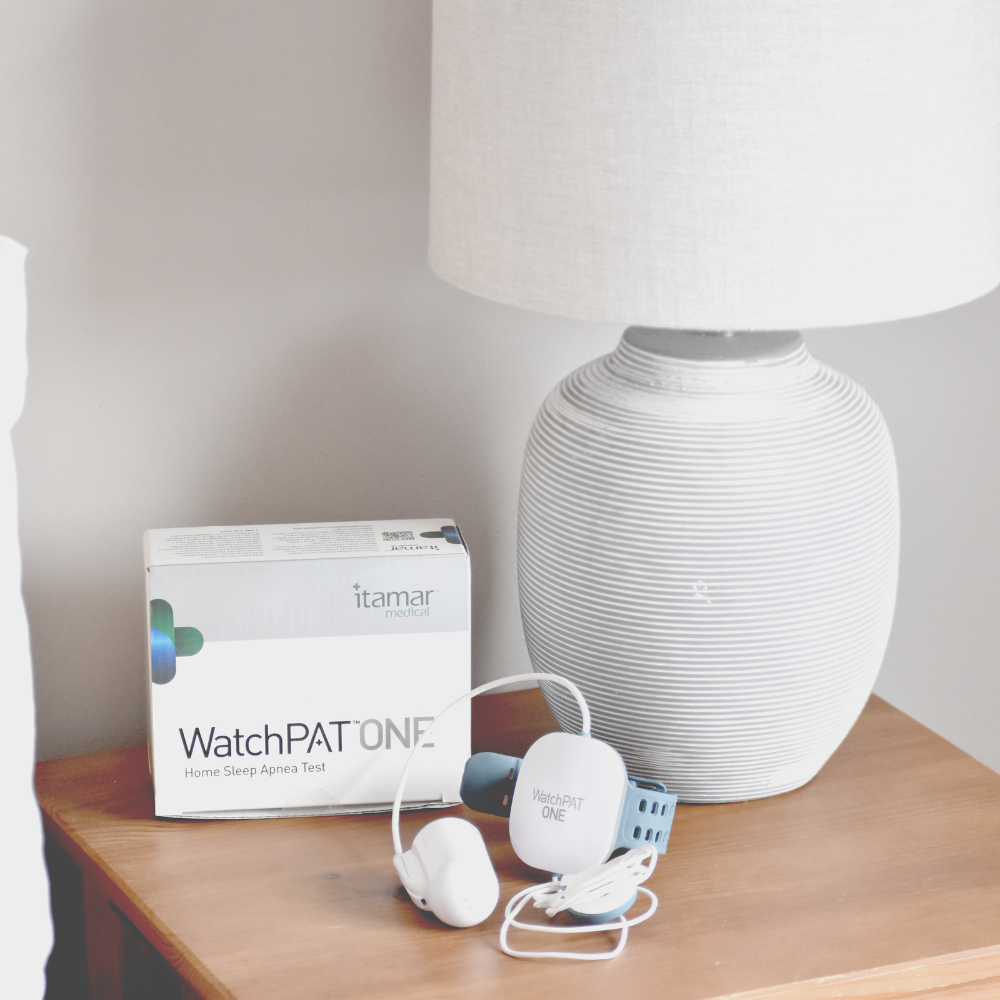Fact Checked
Intus Healthcare’s writers, customer service team, and sleep experts review and ensure this information is accurate.
Last updated on March 31st, 2025 at 11:15 am
From time to time, we have all gone to work with low energy, a feeling of tiredness and a lack of focus, which leaves us struggling to concentrate. On these days, we tend not to achieve as much, which can leave us feeling demotivated.
Here are some of the primary reasons for experiencing a lack of concentration at work.
Table of Contents
Lack of concentration
There could be numerous reasons why it is hard for you to concentrate at work. It could be due to a lack of motivation or interest, distractions in the environment or even anxiety. It can also be caused by fatigue, boredom, or an unclear understanding of the task at hand. Try to identify the underlying cause of your difficulty focusing and address it.
There are also several strategies you can use to help you focus, such as taking regular breaks, setting achievable goals, and using time management techniques.
Poor concentration due to unhealthy sleep
For many of us, a good night’s sleep rectifies the problem, and we return to normal the following day. For others, it is a scenario which can repeat itself every day, leaving them feeling constantly tired, irritable, and continually struggling to concentrate.
A lack of concentration can negatively affect production levels at work and potentially hinder career development. The accompanying lack of enthusiasm and drowsiness can lead to mistakes and increase the risk of accidents and injuries.
This is a critical issue for those who drive company vehicles or operate machinery.
Sleep is critical for our bodies to recover from the day’s activities. If you struggle to get the recommended 7 to 8 hours of sleep, you should address the reasons for this, make the necessary lifestyle changes, or explore any underlying health conditions.
Good sleep is essential for our focus and concentration levels, and it provides you with the energy you need, so trying to develop a regular and healthy sleep pattern is key. This means prioritising sleep, maintaining regular hours for going to bed and keeping to a sensible time for waking and getting up.
Practising good sleeping habits (sleep hygiene) can help your concentration; for guidance,
visit our article – What is sleep hygiene, and why is it important?
Underlying factors affecting your health
- Thyroid complications can affect your concentration. Hypothyroidism, a condition in which the thyroid gland produces too little of the thyroid hormone, can cause difficulty concentrating, fatigue, difficulty remembering things, and difficulty focusing. Hyperthyroidism, a condition in which the thyroid gland produces too much of the thyroid hormone, can also cause difficulty concentrating, difficulty focusing, and difficulty staying on task. If you think you may have a thyroid disorder, it’s important to speak with your doctor to get it properly diagnosed and treated.
- Stress can lead to a decrease in focus and an inability to concentrate, which makes it difficult to stay on task. Stress can also be an issue which keeps you awake at night, causing fatigue the following day, and a contributory factor to your low concentration levels. There are many elements of modern life, particularly when work and careers are involved, which can result in stress and the inability to “switch off” at night.
To help manage stress, it is important to practice healthy coping skills such as deep breathing, exercise, and healthy eating. It is also important to take regular breaks and get plenty of rest.
- Mental health can affect your concentration. Mental health issues such as depression and anxiety can lead to difficulty concentrating and difficulty focusing. It can also lead to fatigue, difficulty remembering things, and difficulty staying on task. If you think you may be struggling with a mental health issue, it is important to talk to your doctor or a mental health professional.
Mindfulness exercises, including just 10 minutes of meditation, can help to relax the mind, as can exercise. If you are not exercising enough – and tend to rely on a diet which lacks balance and nutritional value – this can also lead to problems with concentration at work.
- Your work environment can also affect your ability to concentrate. A messy work area is an environmental issue that can make concentrating tough. There is a saying, “Untidy desk, untidy mind”, and an untidy workspace can be distracting, not allowing you to focus on one job at a time.
Interruptions by co-workers can also be very distracting. Either in person, by phone or by email, and these can hinder any chance of having consistent focus. Developing a clear schedule and reducing the need to have to multitask can also improve concentration on the task at hand.
- Attention Deficit Hyperactivity Disorder (ADHD) If none of the above factors is an issue, or if you have corrected some of them,yet, you still struggle to concentrate, you may have an attention disorder such as ADHD. Itis estimated that 4% of adults suffer from this condition and if it is suspected, it is recommended that you (1)discuss this with your doctor.
Tips to help you concentrate
If you are struggling to concentrate, these tips could help:
- Take a look at your medications; certain medications have side effects that can affect your thinking.
- Remove distractions, declutter your desk and turn off the tv! (if you work from home)
- Train your brain by completing brain puzzles or by reading a book to keep your brain active.
- Look after your body by exercising and eating a varied diet with gut-friendly foods.
- Take small breaks throughout the day to let your brain relax.
- Go outside and get as much vitamin D as you can to help prevent sleepiness.
- Listen to music; this can help you focus on your work.
- Consume a small amount of caffeine, for example, a serving of dark chocolate.
- Take vitamins to help you focus: vitamin C, Magnesium and vitamin B
- Try to avoid multitasking, as this can effect concentration levels.
- Create a bedtime routine to get 7-8 hours of sleep every night. If you find this impossible, find out if you have a sleep disorder.
Sleep disorders are a common reason for a lack of concentration, and the sleep disorder Sleep Apnoea is perhaps the most common.
Why can’t I concentrate? Is it Sleep Apnoea?
Obstructive Sleep Apnoea (OSA) is the most common type of sleep disorder. It affects millions of people worldwide, yet it is estimated around 85% of sufferers are unaware they have the condition(2). People with the disorder can awaken numerous times through the night, sometimes gasping for air as their airway becomes blocked. The constant interruption of breathing can severely affect the quality of sleep and the overall quality of your life.
Aside from having a lack of concentration at work, low energy and poor motivation, there are some other common signs of Sleep Apnoea that you will want to be aware of, and these include heavy snoring, memory loss and frequent morning headaches.
OSA is more prevalent in men who are over 40 years of age, but it can still affect anyone. Lifestyle factors such as obesity, smoking and alcohol consumption are also contributing factors.
Besides the potentially serious consequence of falling asleep at work or while driving, OSA can lead to further serious health issues if left untreated. These include:
- Heart disease
- Stroke
- High blood pressure
- Type 2 Diabetes
- Liver damage
- Depression and anxiety
- Pregnancy complications
- Constantly feeling tired
Treating the symptoms of OSA is crucial, and the first step involves diagnosis. An easy way to determine if you have the disorder is by taking an In-Home Sleep Test.
Diagnosing Sleep Apnoea with an In-Home Sleep Test
If you think you are experiencing the symptoms of Obstructive Sleep Apnoea, then you should not put off getting tested. Doing a home sleep study can quickly confirm or rule out OSA. With a positive result, you can start treatment immediately. A negative result lets you focus on finding another cause of your sleep problems.
An In-Home Sleep Test is worn for just one night in your own bed and is a cost-effective and faster alternative to an NHS sleep clinic.
The in-home test is straightforward and involves wearing a small finger probe and chest sensor. The equipment monitors and records your blood oxygen levels and heart rate throughout the night, as well as other important factors needed for an accurate diagnosis.

Home Sleep Apnoea Test
The test monitors your heart rate, snoring intensity, blood oxygen levels, body positioning, and more, providing accuracy comparable to testing used in sleep clinics for in-depth sleep analysis.
The simple-to-use test takes just one night to complete, and results are returned within two working days after completion.
Our experienced NHS-qualified sleep professionals independently analyse all studies, providing follow-up advice and support.
If you have any concerns about your sleep, which are not mentioned here, please get in touch with us for further advice and support.
About Our Editorial Team
Danni is a degree-educated content writer passionate about helping those with Sleep Apnoea sleep better; she works closely with our clinical and customer care teams to ensure that each article is thoroughly researched and accurate.
Her writing aims to inform, support, and advise readers about Sleep Apnoea, helping to raise awareness and promote effective treatment options.
She has written many health-focused articles, reaching hundreds of readers annually, to help people sleep better and live healthier lives.
Lateisha King is an experienced Sleep Clinician with advanced training in polysomnography and respiratory health.
With over six years of experience, including at the prestigious Guy’s and St Thomas’ NHS Foundation Trust Hospital, she has conducted and reviewed more than 500 diagnostic sleep studies.
Her expertise in sleep science ensures that all articles align with the latest data and treatment protocols, providing readers with trustworthy and practical advice to improve their sleep health and overall well-being.
References:
- Posner, J., Polanczyk, G. V., & Sonuga-Barke, E. (2020). CKS is only available in the UK. NICE. https://cks.nice.org.uk/topics/attention-deficit-hyperactivity-disorder/background-information/prevalence. Accessed: 12.10.23.
- British Lung Foundation. (2015). Obstructive sleep apnoea (OSA) – asthma + lung UK. Obstructive Sleep Apnoea (OSA). https://www.asthmaandlung.org.uk/sites/default/files/OHE-OSA-health-economics-report—FINAL—v2.pdf. Accessed: 12.10.23.





